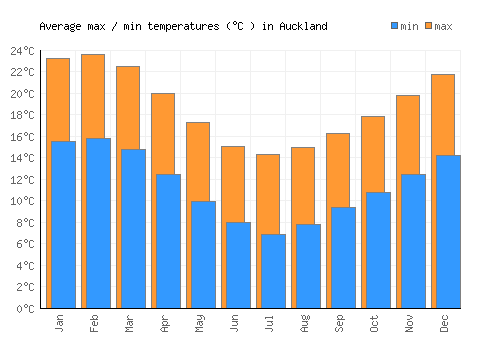New Zealand has long been renowned for its stunning landscapes, friendly locals, and high quality of life. However, in recent years, the country has also gained attention for its soaring property prices. The average house price in New Zealand has been on an upward trajectory, presenting challenges for both aspiring homeowners and policymakers alike. In this article, we’ll delve into the factors driving this trend, examine the current state of the housing market, explore its impact on New Zealanders, and consider potential solutions to address the issue. You can also read this Why Auckland Yearly Temperature Matters Understanding the Climate Trends
Understanding the Average House Price in New Zealand
To comprehend the dynamics of the housing market in New Zealand, it’s crucial to first understand what contributes to the average house price. Several key factors influence property prices in the country:
-
Supply and Demand Dynamics
- Like any market, the real estate sector is heavily influenced by supply and demand. Limited housing supply, coupled with strong demand driven by factors such as population growth, immigration, and urbanization, can exert upward pressure on prices.
-
Economic Conditions
- Economic factors, including employment levels, wage growth, interest rates, and overall economic stability, play a significant role in shaping housing market trends. A robust economy often correlates with higher property prices, as people feel more confident about investing in real estate.
-
Government Policies
- Government policies and regulations, such as land use regulations, zoning laws, taxation policies, and incentives for homebuyers, can impact the housing market dynamics and, consequently, average house prices.
-
Foreign Investment
- Foreign investment in the New Zealand property market has been a subject of debate, with concerns raised about its impact on affordability and housing availability for locals. Foreign buyers, attracted by New Zealand’s natural beauty and stable economy, can influence property prices, especially in popular areas.
Housing Market Sentiment
Sentiment and investor confidence also play a role in driving housing market trends. Positive market sentiment can fuel demand and contribute to price appreciation, while negative sentiment may lead to a slowdown in the market.
Examining the Current State of the Housing Market
As of [insert current year], the average house price in New Zealand continues to rise, reaching unprecedented levels in many regions across the country. According to [insert relevant data source], the national median house price has [insert statistics, e.g., increased by X% over the past year], surpassing the affordability threshold for many prospective homebuyers.
Auckland, New Zealand’s largest city and economic hub, often serves as a bellwether for the broader housing market. In Auckland, the average house price has consistently remained among the highest in the country, driven by factors such as population growth, limited land availability, and strong demand from both local and overseas buyers.
However, the housing affordability crisis is not confined to Auckland alone. Other regions, including Wellington, Christchurch, and Queenstown, have also experienced significant price escalation, albeit to varying degrees. This trend has led to concerns about housing affordability, social equity, and the widening gap between homeowners and renters.
Impact on New Zealanders
The soaring average house prices in New Zealand have far-reaching implications for individuals, families, and society as a whole:
-
Affordability Challenges
- High property prices pose significant challenges for first-time homebuyers, young families, and low to middle-income earners who struggle to save for a deposit and qualify for a mortgage. The dream of homeownership becomes increasingly elusive, contributing to generational wealth disparities.
-
Rental Pressures
- As property prices rise, so too does the cost of renting, placing additional financial strain on tenants. Rental affordability becomes a growing concern, particularly in urban centers where demand for rental properties outstrips supply.
-
Wealth Inequality
- The disparity in property ownership between homeowners and renters exacerbates wealth inequality, with homeowners benefiting from property appreciation while renters face rising housing costs and limited prospects for asset accumulation.
-
Social Cohesion
- The housing affordability crisis can impact social cohesion by creating divisions between property owners and non-property owners. It may also lead to geographical segregation as lower-income households are pushed to the outskirts of cities in search of more affordable housing options.
-
Economic Implications
The housing market plays a significant role in the broader economy, influencing consumer spending, investment patterns, and financial stability. High house prices can deter investment in other sectors, diverting resources away from productive activities.
Addressing the Housing Crisis
Addressing the housing affordability crisis in New Zealand requires a multifaceted approach involving government intervention, urban planning reforms, community initiatives, and private sector collaboration:
Increasing Housing Supply
Addressing the supply-demand imbalance requires a concerted effort to boost housing supply through initiatives such as streamlined planning processes, incentivizing property development, and investing in infrastructure to support urban expansion.
Affordable Housing Initiatives
Governments at both the national and local levels can implement policies to promote affordable housing, including subsidies for first-home buyers, shared equity schemes, and public-private partnerships to develop affordable housing projects.
Regulatory Reforms
Reviewing and reforming regulations related to land use, zoning, building codes, and taxation can help remove barriers to housing development and encourage more diverse and affordable housing options.
Foreign Ownership Restrictions
Implementing measures to restrict foreign ownership of residential properties can help mitigate speculative demand and ensure that housing stock is prioritized for residents.
Support for Renters
Enhancing tenant rights, promoting secure and affordable rental housing, and implementing rent control measures can provide stability and support for renters facing rising housing costs.
Conclusion
The average house price in New Zealand continues to climb, presenting significant challenges for affordability, social equity, and economic stability. Addressing the housing crisis requires a coordinated effort from the government, industry stakeholders, and the community to increase housing supply, promote affordability, and ensure access to safe and secure housing for all New Zealanders. By implementing comprehensive reforms and innovative solutions, New Zealand can work towards creating a more inclusive and sustainable housing market for future generations.



